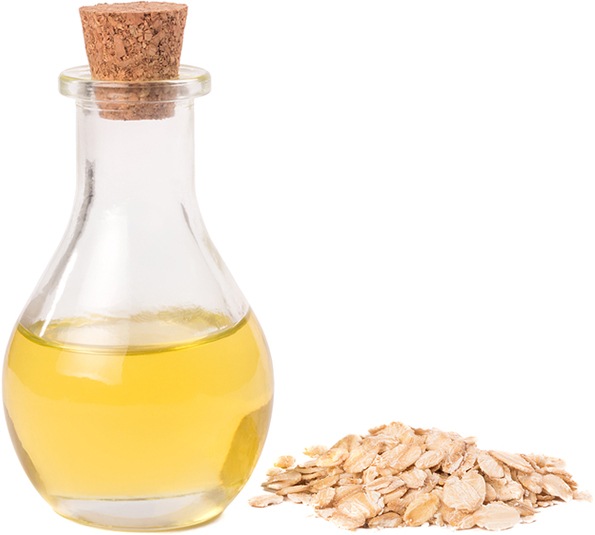
Health Benefits of Polar Lipids for Horses
Lipids represent a large class of molecules that include fatty acids, phospholipids (lecithin), galactolipids and triglycerides. Polar lipids, so-called because they have a hydrophilic head and a hydrophobic tail, play a key role in the structure and function of cellular membranes. They are found in much of the plant material already in equine diets. As a result of their ubiquity, lecithins and lipids are considered to be GRAS (generally regarded as safe) supplements.
Polar lipids are naturally occurring molecules derived from cell membranes (such as those found in oats) that provide various benefits to the health of the equine gastrointestinal tract. Polar lipids have been shown to assist with:
- nutrient absorption
- strength and integrity of the intestinal mucosa barrier
- normal brain function
Oat oil is rich in polar lipids, particularly galactolipids. In fact, research has shown that oats may contain a much higher concentration of polar lipids compared with other plant tissues. While galactolipids are rare in animals, they are the most common lipids in plants – and the most abundant form of lipids on the planet. Animals generally lack the enzymes needed to synthesize these polyunsaturated polar lipids on their own, and so they must acquire them in the diet.
Polar lipids:
- support nutrient uptake and provide energy
- strengthen and protect the gut lining
- boost neurologic functions
- aid in post-exercise recovery
POLAR LIPIDS FOR NUTRIENT UPTAKE AND ENERGY
Polar lipids are versatile emulsifiers that stabilize oil-water mixtures and maximize the uptake of ingredients into the vascular system and tissues. They provide an ideal nutrient delivery vehicle, capable of ferrying both fat- and water-soluble molecules, including vitamins A, K, D and E, throughout the body.
Polar lipids, especially galactolipids, have been shown to increase bio-availability of such nutrients by up to 500%. After transporting their nutritive load, polar lipids are readily absorbed in the gut (after digestion by bile salts), where they supply extra energy to the horse.
POLAR LIPIDS PROTECT THE GI TRACT
Polar lipids are important structural components of cell membranes. As such, they help the enterocytes (absorptive cells) of the intestinal lining to maintain integrity against:
- digestive juices
- toxins
- pathogens
If these membranes are disrupted, the gut wall may be breached, and injury in the form of an ulcer may result.
Adding polar lipids to the diet has been shown to protect the intestinal mucosa and to strengthen the impermeability of the barrier. The risk of inflammation and lesions developing in horses are thus minimized.
POLAR LIPIDS AND BRAIN FUNCTION
POLAR LIPIDS, VITAMIN E, AND RECOVERY
Oat oil, an ideal source of polar lipids for horses, is also naturally high in Vitamin E, a major lipid-soluble antioxidant in the defense system.
Free radicals are formed in the body in response to exercise and have been associated with muscle fatigue. Vitamin E scavenges these products of oxidative stress and protects against damage from free radicals. Dietary polar lipids help Vitamin E sweep free radicals out of the system before they can harm the surrounding tissue.
USE POLAR LIPIDS TO SUPPORT DIGESTIVE HEALTH
Assess your horse’s health to determine if added digestive support may be beneficial for health and performance.
References
- Martin GP, Marriott C, Kellaway IW. The interaction of progesterone with mucus glycoproteins. Pharm Acta Helv. 1981;56(1):5-8.
- Kiviluoto T, Paimela H, Mustonen H, Kivilaakso E. Exogenous surface-active phospholipid protects Necturus gastric mucosa against luminal acid and barrier- breaking agents. Gastroenterology. 1991 Jan;100(1):38-46.
- McNeil PL, Ito S. Gastrointestinal cell plasma membrane wounding and resealing in vivo. Gastroenterology. 1989 May;96(5 Pt 1):1238-48.
- Dupree JL, Coetzee T, Blight A, Suzuki K, Popko B (1998), Myelin galactolipids are essential for proper node of Ranvier formation in the CNS. J Neurosci 18(5):1642-49.
- Kreitler B. Feed and Nutrition: Fat: The Next Nutraceutical? Thoroughbred Times, April 12, 2003.
- Cereal Chemistry Journal: “Oat (Avena sativa L.) kernels appear to contain much higher polar lipid concentrations than other plant tissues.” (Cereal Chem. 87(5):467–474)
Take the next steps toward supporting your practice.
Let’s continue the conversation on equine GI health management. Let us know how we can help.
Where to Buy SUCCEED® Products
All SUCCEED products are available for purchase through veterinary supply distributors for you to resell to your clients.
Your clients may also purchase SUCCEED Digestive Conditioning Program from local and online retailers throughout the United States and Canada.

